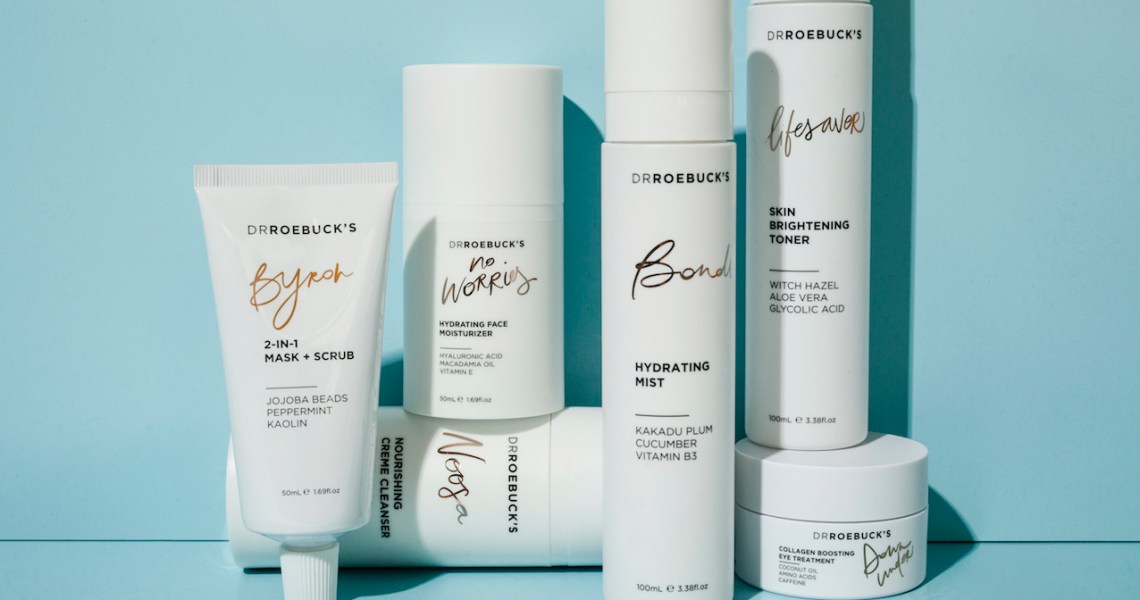Australian beauty, otherwise known as A-beauty, has been a global beauty trend gaining traction over the past year. Companies like body-scrub brand Frank Body and skin-care brands Grown Alchemist and Dr. Roebuck’s have been able to find success in the U.S. market due to their clean positioning.
Dr. Roebuck’s, in particular, has been quickly growing. After launching in 2016, it quickly came stateside and has since expanded to 20 other countries including the U.K. In total, it’s sold in more than 2,000 doors, and online via Sephora, Cult Beauty and SpaceNK. In April 2019, Dr. Roebuck’s received an undisclosed investment from Unilever Ventures.
Kim Roebuck, co-founder of Dr. Roebuck’s, spoke with Glossy about what the company has learned from entering the U.S. market, whether its Australian positioning helps lure customers and what challenges it faces as a clean indie brand.
What have you learned about the U.S. beauty market in the last three years?
It’s the largest economy in the world, and you can’t handle that from far away. You have to be on the ground; you can’t do it remotely. [In 2017, Roebuck moved to Los Angeles to oversee American business operations, while her sister and co-founder has continued to work in Australia.] Also, within the beauty industry, you have to have really unique products. You also have to be transparent and authentic because you will get called out. You have to have a true and honest story that people can connect with or the brand won’t work.
Do your Australian roots give you a competitive edge?
I think [non-Australian competitors] assume it gives us more clout than it does. But the reality is that when I’m in stores or talking to aestheticians or experts, they say, ‘What does it matter if it’s from Australia?’ or ‘Why would I buy this?’ To convert the customer, we have to focus on education and what the products actually do. We have had to be very direct and blunt with our branding and messaging. In 2017, we redid our packaging, which previously looked pharmaceutical and didn’t call out that we are a clean brand.
What challenges you have faced as you have scaled?
The biggest challenges are supply and capital, and both are connected. We make everything in Australia, so that gives us a 16-week lead time, which makes things difficult when it comes to inventory, production and distribution. Everyone I know is in the same boat. [None of us] own our factories or have enough cash, so we have to take our time. But I try taking the optimistic side of it. When you can’t buy too much, you make smaller mistakes, and you learn from them along the way.




